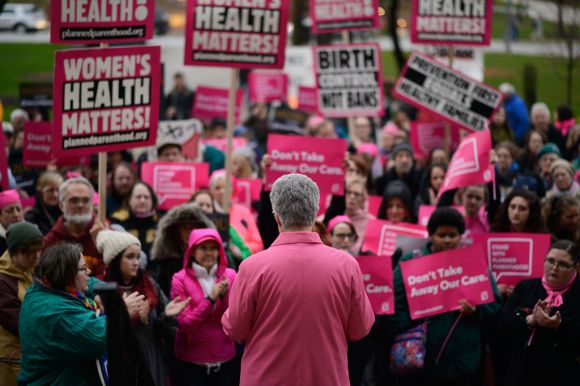
In December 2015, a Texas grand jury announced that none of the law enforcement officers involved in the death of 28-year old Sandra Bland would be indicted. In the midst of the grief of close family and friends, nationwide mourning, and public debate attempting to make sense of the mysterious details of a death ruled as a suicide, one issue comes to the forefront: the failure to center black women in the continued fight against police brutality towards African Americans in the United States.
The Black Lives Matter movement has gathered enormous momentum with the creation of the hashtag and numerous online forums, mobilizing activists to hold protests across the country in order to shine a light on the use of excessive and often fatal force in the policing of black and brown bodies, and to reinforce the message that African American lives should be valued and not treated as disposable. The heightened media attention for male victims of police brutality like Eric Garner, Mike Brown and Tamir Rice may not necessarily indicate that general members of the public and national authorities are actually invested in the effort to disrupt and transform a system which still hinges on a violent history of slave labor and racial segregation. It however highlights the troubling rhetoric which frames police brutality as a form of violence faced almost exclusively by black men.
It is even more frustrating to note that despite the fact that Black Lives Matter was founded by three women, Opal Tometi, Alicia Garza and Patrisse Cullors, there is a tendency to cling to male activists that have risen from within the movement. This phenomenon isn’t exactly unique to our times. The Civil Rights Movement of the 1960s showed a similar elevation of male leaders as the representatives of the struggle, while the women who played pivotal roles in the progress of the movement were diminished to the background. This erasure of women from the struggle against racial and socioeconomic inequity suggests a dangerous perpetuation of the notion of black women as the sacrificial, auxiliary figures whose cause must always be submerged for the benefit of black men and of society in general.
An adjustment of the movement to reflect the multiple, intersecting systems of oppression operating over the lives of black women may also fall into dangerous territory by going to another extreme and relying on the trope of black female victimhood which also provides an incomplete portrait of black women’s position. It is nevertheless incredibly important to recognize and name not only the women who continue to advocate for justice but also those who have suffered the same brutality that has previously been understood as a “war on black men”. Black women also face sexual violence as their bodies have been and continue to be over-sexualized and dehumanized in such a way that manages to pin this violence onto their own sexual or moral deviance rather than on the offender. The lack of media coverage concerning the case of former Oklahoma City police officer Daniel Holtzclaw represents only one of many such instances. He received a 263-year prison sentence for the sexual assault of 13 black women.
16-year old Gynnya McMillen is the latest black girl to die in police custody. We can also not forget the extreme force used against black girls in a classroom in South Carolina and at a neighborhood pool party in Texas. Natasha McKenna. Tanisha Anderson. Kayla Moore. Rekia Boyd. How many of these names do you know? Black female activists have been mobilizing under the #SayHerName campaign to give a more complete representation of those affected by police brutality. To read about the work being done to ensure that this narrative is brought to the public consciousness, visit the African American Policy Forum website here.
(Image: www.aapf.org)

 Women’s bodies have been transformed into a site for political and ideological debate in the Senate, in the media and in the general discussion of women’s rights and reproductive health. Conservative politicians have targeted Planned Parenthood, as they speak out against abortion, birth control and other issues pertaining to women’s health. At a recent campaign event in Iowa, GOP presidential hopeful Ted Cruz made some supposedly humorous remarks concerning women’s access to contraception, dismissing claims that his anti-choice stance is denying women their fundamental rights. Instead, he argued that his democratic opponents just attack his views as a tool to hurt his campaign.
Women’s bodies have been transformed into a site for political and ideological debate in the Senate, in the media and in the general discussion of women’s rights and reproductive health. Conservative politicians have targeted Planned Parenthood, as they speak out against abortion, birth control and other issues pertaining to women’s health. At a recent campaign event in Iowa, GOP presidential hopeful Ted Cruz made some supposedly humorous remarks concerning women’s access to contraception, dismissing claims that his anti-choice stance is denying women their fundamental rights. Instead, he argued that his democratic opponents just attack his views as a tool to hurt his campaign.